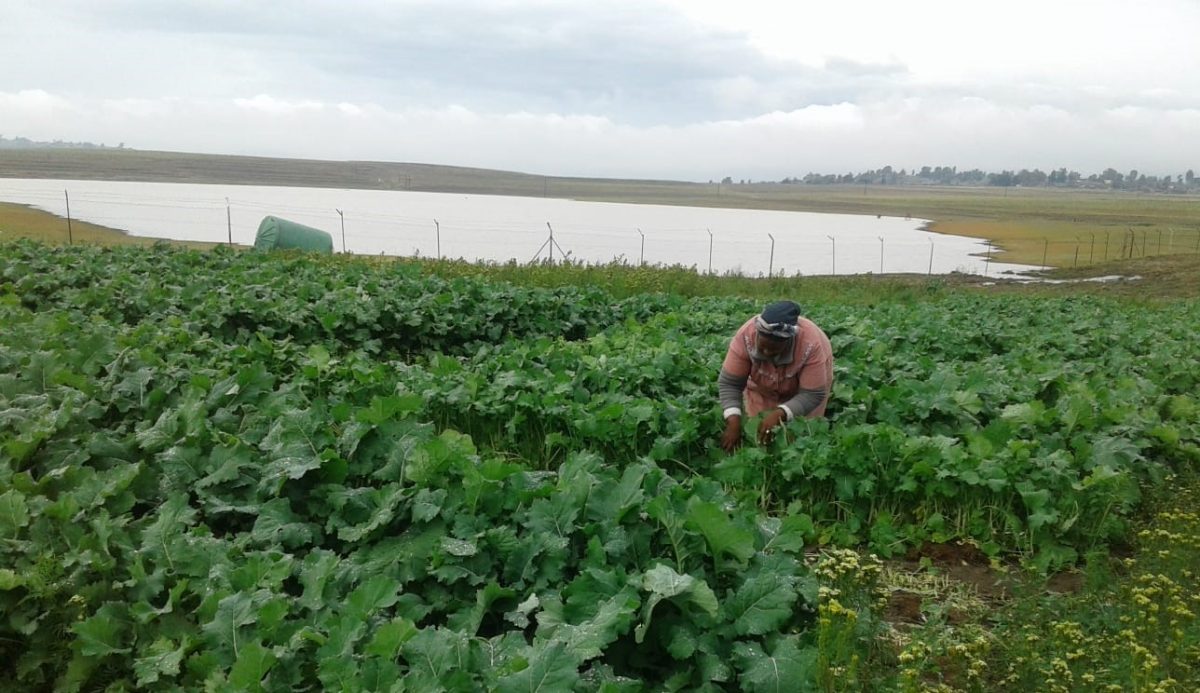-
450,164
farmers trained -
127,112
farmers who have applied improved practices as a result of training -
1,016
enterprises that have applied improved techniques -
206,450
hectares under improved irrigation
As of Jun 10, 2024
Growth in agriculture is, on average, at least twice as effective in reducing poverty as growth in other sectors and can reduce poverty directly by raising incomes on-farm and along the value chain, and indirectly by catalyzing growth outside of agriculture while reducing food prices. Nonetheless, economic growth and food security objectives can be difficult to achieve for a number of reasons, such as poor roads, underdeveloped market connectivity, lack of credit, drought and water scarcity, high post-harvest losses, unhealthy livestock, obsolete technology, and an absence of secure land rights.
MCC has invested more than $5 billion in partner countries to address the many sources of food insecurity. MCC investments cover a wide range of projects that target transportation and storage infrastructure, irrigation systems, access to finance, farmer training, policy reform, nutrition and sanitation. MCC has also helped strengthen property rights and improve land policy to ensure that farmers—many of whom are women—have secure access to land, and that government institutions can effectively manage land resources.
Improving Livelihoods for Women and Small-holder Farmers
Small-holder Farmers
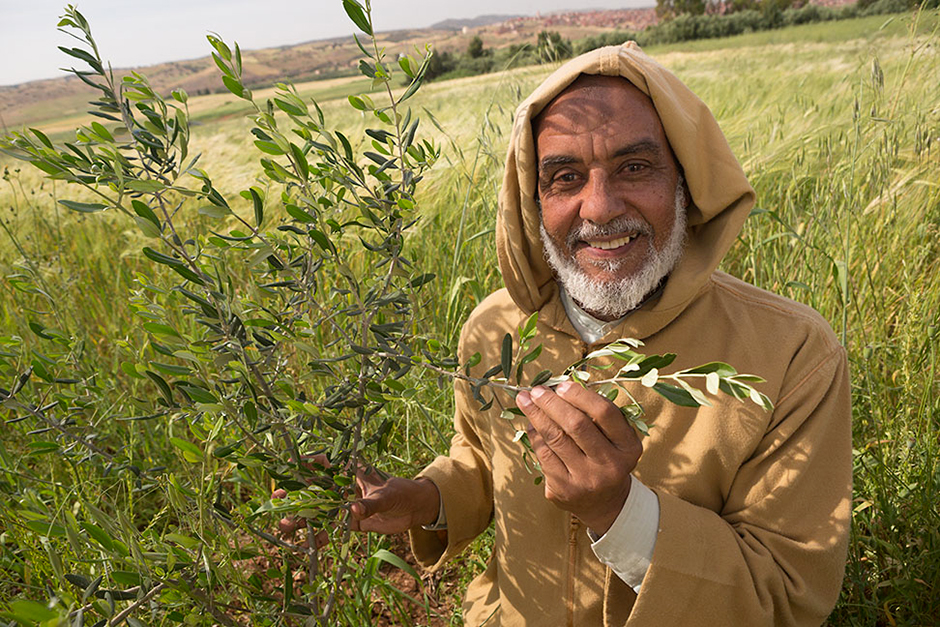
Small-holder farmer Mohamed El Ouafi stands in his wheat and olive sapling field outside Ben Khili, Morocco. Through the Fruit Tree Productivity Project in MCC’s Morocco Compact, he received new tree saplings and agricultural training.
Jake Lyell for MCC
Women in Agriculture
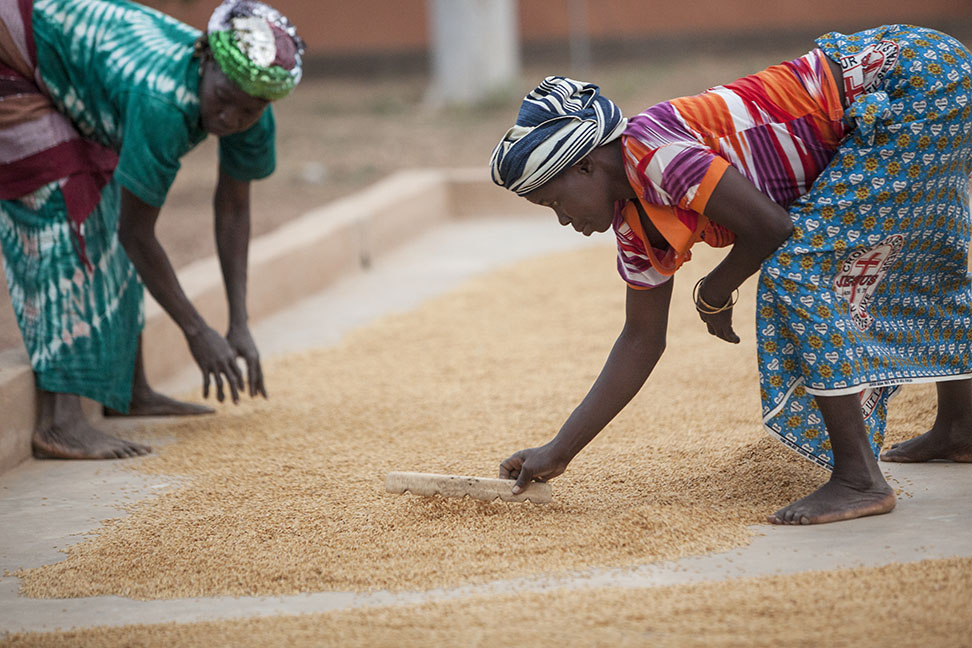
Women prepare rice for processing at the Centre d'Étuvage de Riz de l'Union Ben-Ka-Di de la Vallée du Sourou (Ben-Ka-Di Union's Steaming Center in the Sourou Valley) in Niassan village, Burkina Faso. MCC provided technical training and improved equipment to the women's group, which produces value-added, parboiled rice.
Jake Lyell for MCC
In addition to land rights, MCC promotes greater opportunities for women in the agricultural economy by ensuring that their constraints to higher productivity and participation in high value agriculture are addressed. MCC is committed to using tools such as the WEAI (Women Empowerment in Agriculture Index) and gendered analysis of value chains to design more effective gender-responsive interventions.
Partnerships for Agricultural Development
Strategic Partnerships to Improve Food Security
MCC continues to drive innovation across the U.S. government and the development community, particularly through partnerships. MCC supports partnerships with the private sector that leverage funds toward innovative solutions to problems that constrain inclusive economic growth.Feed the Future
MCC's goals, mission and country-driven approach are consistent with Feed the Future and it is proud to be an implementing agency in the U.S. Government-wide initiative to help sustainably reduce hunger and poverty through increased agricultural development and nutrition programs.MCC supported Feed the Future's development of rigorous analytical tools, including its monitoring and evaluation framework, and continues to share best practices in areas such as irrigation, farmer training and land tenure. MCC also uses tools developed by Feed the Future, including the Women's Empowerment in Agriculture index.
U.S. Global Food Security Strategy
MCC worked with 10 other U.S. Government agencies and departments to develop the U.S. Global Food Security Strategy. The five-year integrated strategy, along with agency-specific implementation plans, builds on the first phase of Feed the Future learnings and provides an integrated whole-of-government approaches, required by the Global Food Security Act of 2016, which President Barack Obama signed into law in July 2016. This bipartisan legislation solidified the U.S. Government's commitment to improving agricultural and food systems to increase incomes, strengthen resilience and boost nutrition.Agriculture Financing
Enabling rural banks and other financial providers to support agriculture and agribusiness is an important step in helping farming communities grow, prosper and compete. MCC works with partner countries to expand access to finance for farmers and agribusinesses by funding agriculture lending programs and providing new technology and credit training to borrowers and lenders.Inclusive Agriculture Lending in Moldova
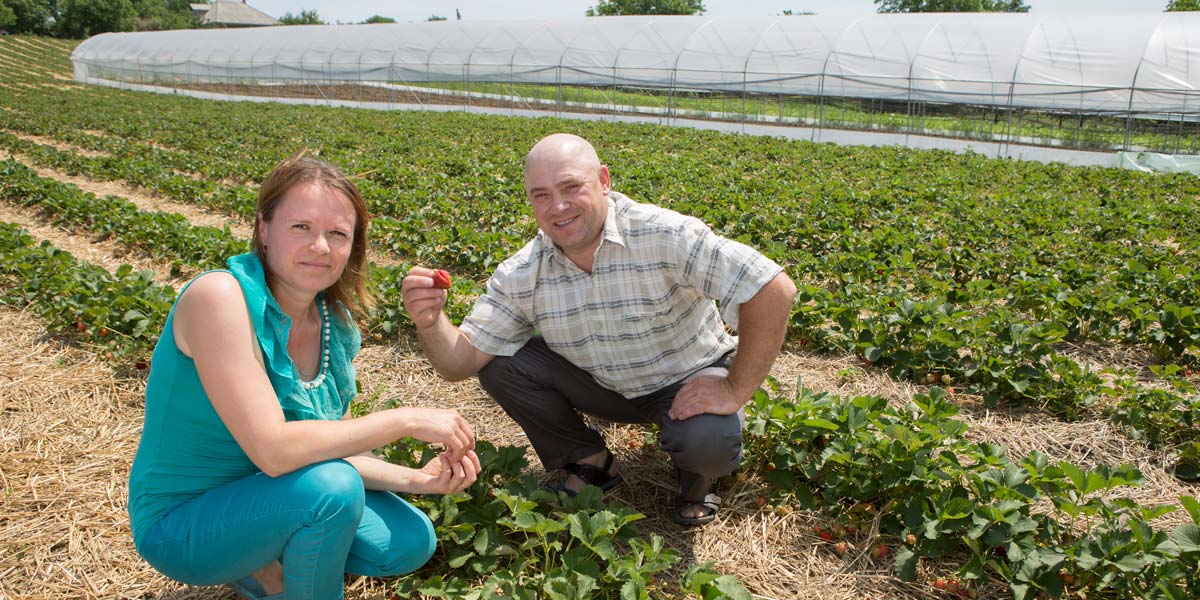
MCC helped Moldovan farmers like Simion and Elena Tertiuc expand their businesses by providing access to finance for agriculture. The Tertiucs built a greenhouse to supplement their small farm with a loan secured thanks to MCC’s compact and planted strawberries and tomatoes.
Jake Lyell for MCC
Increased Access to Credit in Honduras
Accessing credit is a challenge for those who do not have land or real estate assets that banks often require as collateral. As part of a $215 million compact with Honduras, MCC funded an access to credit program that was made possible after policy reforms, including the passage of the Movable Property Law and the establishment of the National Movable Guarantee Registry, which allows for non-real estate assets, such as farm equipment, to be used as collateral. The Honduras Compact, which aimed to increase agricultural productivity, also provided technical assistance to banks and financial providers as well as seed, fertilizer and other suppliers to extend credit to small- and medium-sized farmers under better terms. Farmers were also provided with business and technical assistance to help them become more commercially oriented. By the compact’s end, loans were given to close to 6,000 farmers, agribusinesses, and other producers and vendors in the horticulture industry.Training Farmers
Research, education and training can help farmers apply innovative new systems, improve farm yields and increase their income. Through investments in farmer training programs and technical assistance, MCC works with partner countries to promote growth in agriculture by giving small-holder farmers the knowledge and skills they need to improve their livelihoods.Improved and Efficient Farming Practices in Morocco
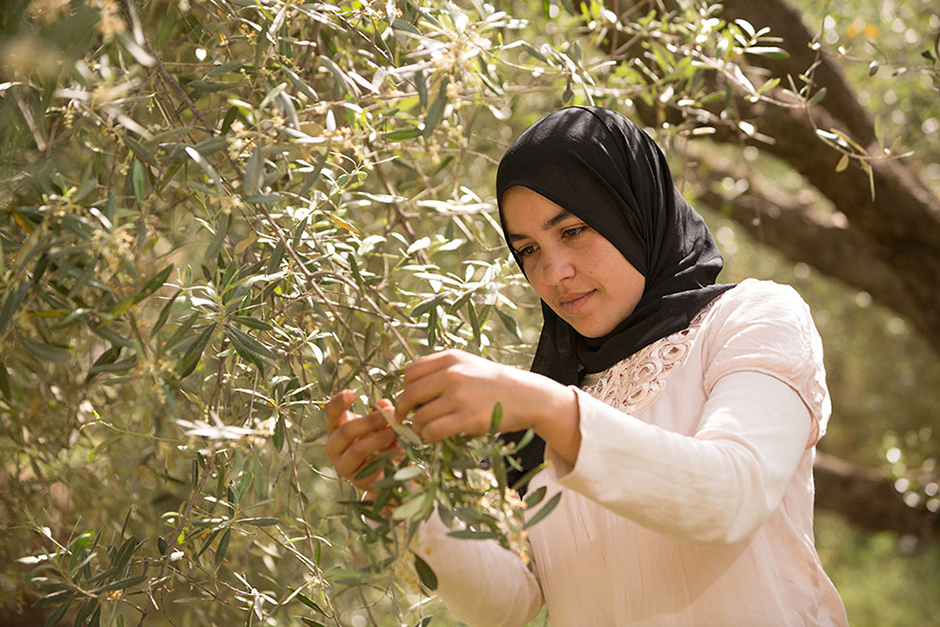
Hajiba is a member of an agricultural cooperative in Ourika, Morocco, which received training and support from MCC. The cooperative provides harvesting and pruning services for small-holder olive farmers in the area.
Jake Lyell for MCC
To increase and stabilize the income of farmers and protect the natural resources, MCC’s $697 million Morocco Compact aimed to help Moroccan farmers diversify to more valuable crops that are less water intensive. The project trained more than 40,000 farmers; rehabilitated about 55,000 hectares of existing, rain-fed fruit tree orchards and 50,000 hectares of existing irrigated orchards; and planted nearly 62,000 hectares of new orchards on land formerly dedicated to wheat production.
Improving Property Rights and Land Policy
Land is an essential asset for agricultural income generation and wealth creation. MCC works with partner countries to strengthen property rights, support transparent land allocation processes, and promote the accessibility and accountability of land administration agencies. About half of MCC’s compacts have included investments that contribute to food security by improving access to secure land rights for small- and large-scale producers in MCC partner countries.Community-led Solutions in Senegal
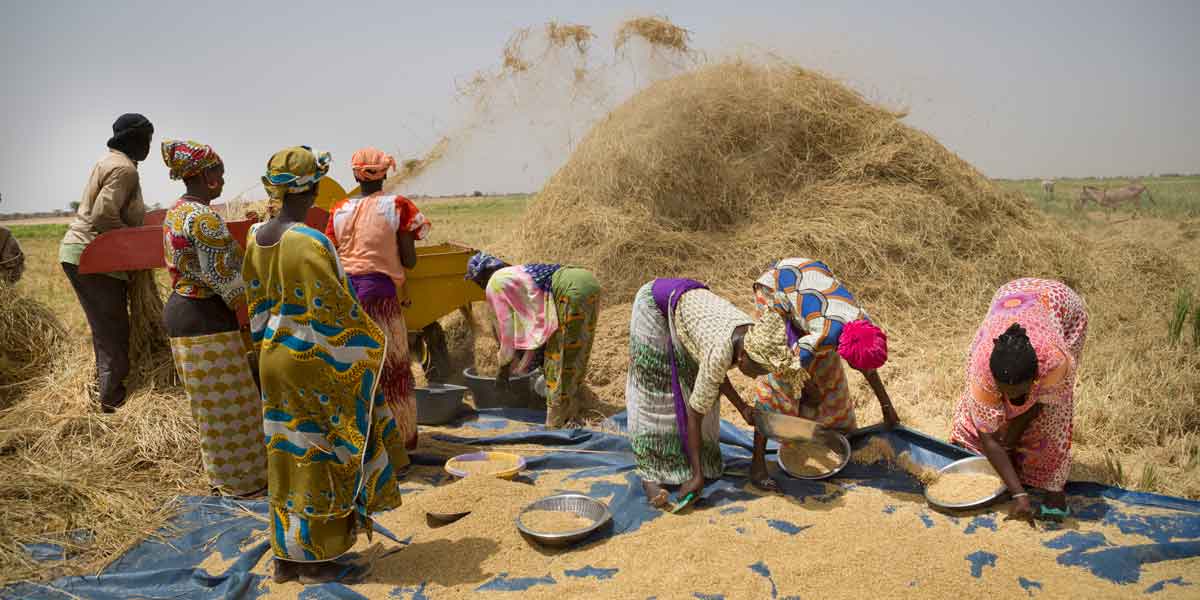
Through MCC’s Senegal Compact, members of the Namodiral women's group received land rights for the first time.
Jake Lyell for MCC
New land allocation criteria were developed from hands-on community workshops that involved input from stakeholder groups, including farmers, herders, women and youth. The approach blended traditional and modern land practices and included work with the local communities and institutions to improve land governance. The Senegalese Government and other donor groups plan to build on the changes made through MCC’s project by expanding its implementation to several additional farm communities in the Senegal River Valley, ensuring continued progress long after MCC’s compact.
Sustainable Land Use in Mongolia
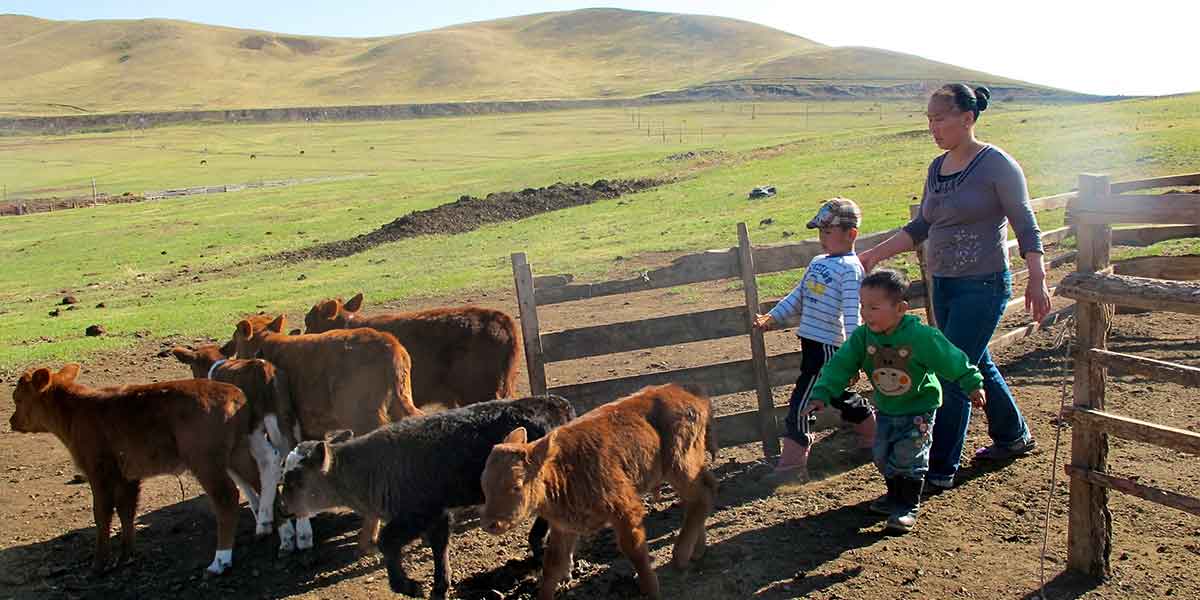
A peri-urban cattle herder in Mongolia who was trained in animal care and proper grazing through MCC Mongolia Compact.
MCC
Through the $269 million Mongolia Compact, MCC helped the government address this problem by supporting the design and implementation of a land-leasing system for pasture areas in peri-urban regions. The system provided land leases that covered more than 1,300 herder households, drilled 346 wells on leased lands to bring water for livestock and household use, and trained herder groups on sustainable land use and livestock productivity. With an effective land-leasing system, quality infrastructure and training, herders can improve their pasturelands and their livelihoods.
Irrigation for Improved Agriculture
Without appropriate water resource management, crops are subject to floods and droughts, creating severe price, yield, and revenue fluctuations. Lack of water also can prevent farmers from growing High-Value crops that can boost incomes and reduce poverty. Training farmers on modern irrigation technology for efficient use of irrigation water also ensures climate resiliency in the event of drought. MCC works with partner countries on policies and practices to better manage water resources used for agricultural production.Increasing Access to Water for Livestock and Agriculture in Niger
In Niger, the agricultural sector employs more than 80 percent of the population and represents the second-largest export sector in the country. Although poverty trends are slowly improving, agricultural productivity has stagnated due to irregular rainfall and a lack of access to equipment, supplies, and information. These challenges mean that much of the Nigerien population struggles to support themselves through farming, let alone increase their household incomes.MCC’s $437 million Niger Compact is strengthening Niger’s agricultural sector and has the potential to benefit more than 3.9 million people—including entrepreneurs and small businesses—through investments in:
- sustainable water supply for livestock and irrigated agriculture
- climate-resilient agricultural production and technology transfer
- improved roads to facilitate market access and modernized livestock market infrastructure
- national livestock vaccination campaigns and development of private veterinarian services in remote areas
- environmental restoration and improved management of natural resources including international livestock corridors
- Grants to cooperatives and SMEs along with business development services
- Reform of the fertilizer sector.
Modernizing Irrigation in Moldova
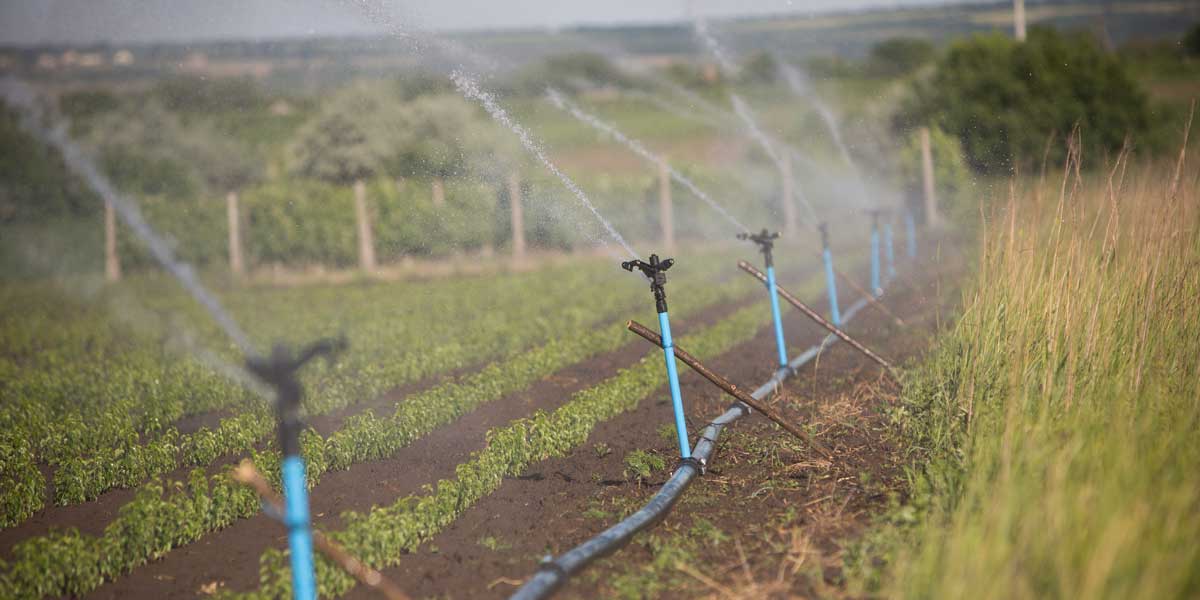
MCC's Moldova Compact rehabilitated and modernized irrigation systems, supporting the production of higher value crops.
Jake Lyell for MCC
Transportation, Roads and Buildings
Agricultural development is critically dependent on sound infrastructure, including transportation networks that provide reliable access between rural and urban areas and food suppliers and consumers. MCC works with partner countries to build and rehabilitate primary, secondary and tertiary roads, as well as other vital infrastructure such as ports, storage and post-harvest facilities, and wholesale and retail markets in support of agricultural economies.Improved Roads Bring Market Access in Ghana
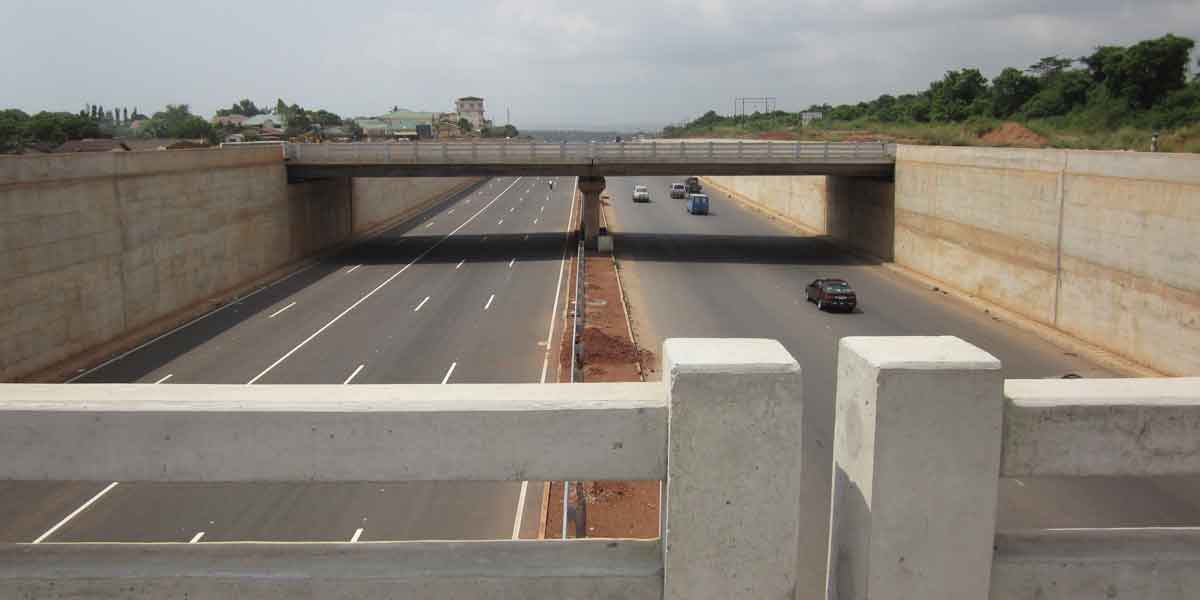
MCC funding upgraded this segment of the N1 highway in Ghana from a two-lane road to a six-lane divided highway with four overpasses, one elevated circle interchange, street lighting, drainage, bus stops, extra-wide sidewalks with ramps, pedestrian walkovers, and stoplights at all major intersections.
MCC
With its ability to successfully grow a wide range of tropical and sub-tropical crops, Ghana has the potential to become the leading West African supplier of agricultural products to Europe, where the demand for tropical, organic, and conventional fruits is high. But poor quality and high transportation costs limited the access and competitiveness of agricultural producers using these roads. MCC’s Ghana Compact included a $228 million transportation project that completed the rehabilitation and construction of new roads, two new ferries, landing stations on Lake Volta, and a new Perishable Cargo Center at Kotoka International Airport to address these challenges. The cargo center aimed to support exports by ensuring farm-fresh products and other goods loaded onto daily cargo flights can arrive in supermarket shelves in Europe the very next day.
Nutrition
Improved nutrition is essential to achieving food security and fostering prosperous, resilient communities. Malnourishment can lead to lower economic productivity, increased health costs, and higher rates of mortality. Undernutrition, particularly during pregnancy for mothers and in the first years of a child’s life, also has extensive health and economic impacts – it can lead to lower levels of educational attainment, productivity and lifetime earnings. MCC’s nutrition interventions complement broader efforts by MCC to strengthen agriculture and food systems and promote economic growth and poverty reduction.Community-based Nutrition Programs in Indonesia
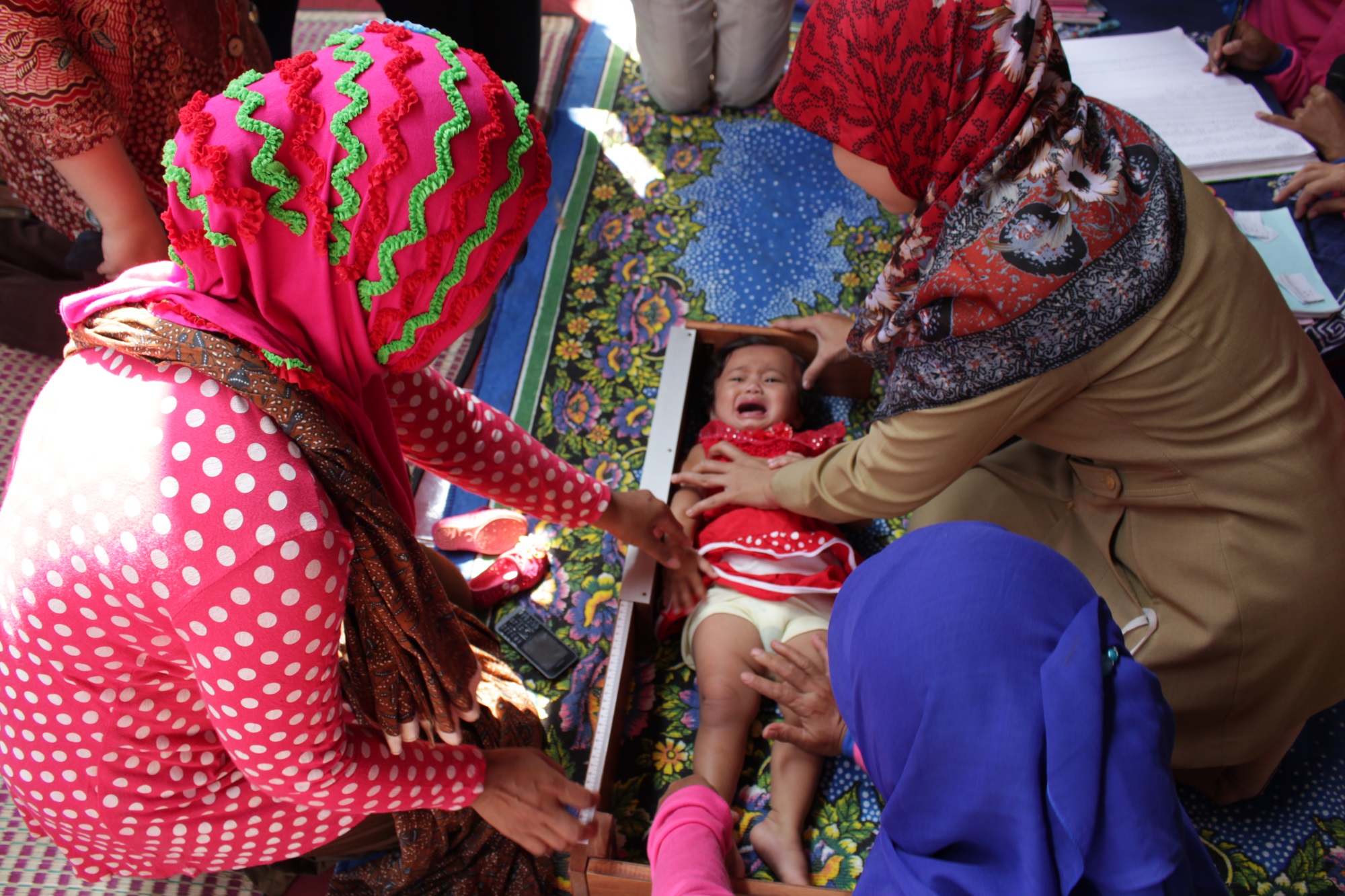
Women in Indonesia learn how to properly measure a baby's height as part of the MCC-funded nutrition project.
MCC
As part of MCC’s $600 million Indonesia Compact, a community-based nutrition project aimed to reduce and prevent low birth weight, childhood stunting, and malnourishment among children by integrating sanitation, maternal and child health and nutrition interventions. The project partnered with the World Bank, using incentives-based community grants to increase demand for health, nutrition and education services. The project aimed to improve the health sector’s capacity to respond to this increased demand at the health facility and community levels.


